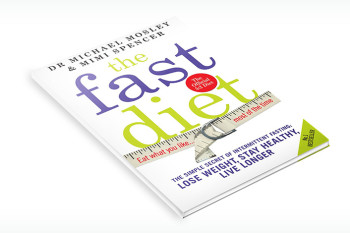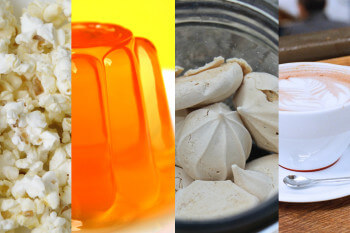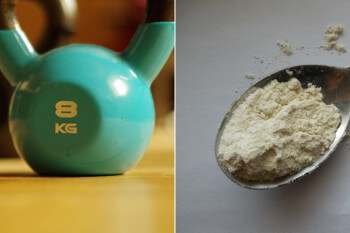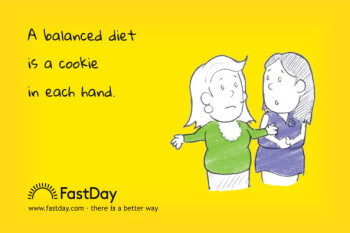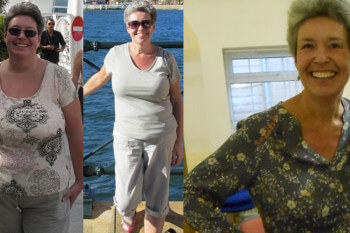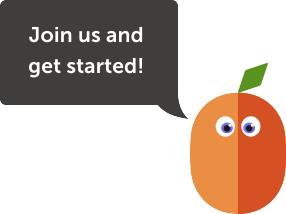We’ve put together our list of our favourite 50 foods, to help inspire you in your new Way of Eating. As well as being nutritionally good for you, we have tried to pick foods that are easy to get and that taste good – as even the healthiest foods are no use if you can’t get them or they taste horrid!
Asparagus – Aspargus is packed full of nutrients, including key antioxidants and anti-inflammatory nutrients.
Apples – Famously, “an apple a day keeps the doctor away”. Apples are packed full of great nutrients, with a particularly large impact on heart disease risk.
Avocados – Avocados are high in calories, and so may be best avoided on fast days, but they are delicious and full of nutrients (an avocado contains more potassium than a banana does).
Bananas – Bananas are only 100 calories, and are filling. They are a good source of potassium, which plays key roles in keeping your heart healthy and your muscles working well.
Beef – Beef is nutrient-dense, and is a particularly good source of conjugated linoleic acid, which could help prevent cancer, and iron.
Beets – Beets’ striking colour is due to beta-cyanin, which also happens to be a crucial disease-fighting antioxidant.
Black beans – Black beans are good source of fiber as well as a range of other nutrients. For vegetarians and vegans, they are also a great source of iron!
Blueberries – Blueberries are bursting with antioxidants, and can help prevent infections in your digestive system and bladder.
Broccoli – Broccoli is a wonderful source of sulphoraphane, which can help prevent cancer, as well as tons of other nutrients. They are also low in calories so are perfect for fast days!
Brown rice – Brown rice is far healthier than white rice, and because it is less processed can often be cheaper. The process by which brown rice is turned into white rice removes up to 90% of key nutrients – so start your conversion to brown rice now!
Brussels sprouts – Brussels sprouts have tons of vitamin C, iron and cancer-preventing nutrients – and they are low in calories. Learn to love them if you can.
Cabbage – cabbage is full of indoles, which are compounds that can help prevent and fight cancer. Cabbage is also very low in calories that makes it a great food to have on fast days.
Carrots – one carrot contains twice your recommended daily intake of vitamin A, which lowers the risk of both heart disease and cancer. They may not help you see better in the dark though…
Cauliflower – Cauliflower is low in calories and high in nutrients, including vitamin C. Cauliflower mash or ‘rice’ makes a fantastic fast day meal.
Celery – Celery is famously low in calories – some people have even suggested that chewing and digesting celery consumes more calories than it provides – but it also contains nutrients that help lower blood pressure and cholesterol.
Chicken – After removing the skin, chicken becomes one of the best low-calorie sources of protein, so makes a good fast day choice.
Cinnamon – Studies have indicated that incorporating cinnamon into your daily diet improves insulin function, and thus reduces the chance of developing diabetes.
Cucumbers – Cucumbers are a fantastic source for a range of nutrients known as flavonoids. These anti-oxidants are also anti-inflammatory, and so the body in a huge number of different ways.
Eggs – Eggs are a great source of protein – so much so that the World Health Organization uses eggs as their reference for assessing protein quality in other types of food.
Figs – Figs are a good source for a range of nutrients, including dietary fiber and potassium.
Garlic – Garlic is full of organo-sulfur compounds, which have been shown to reduce cholesterol significantly.
Ginger – Ginger is good for your digestive system, and has anti-inflammatory properties that may help with treating conditions such as arthritis.
Green beans – Green beans are bursting with carotenoids, which lower the risk of heart disease, eye degeneration and cancer, amongst other things.
Kale – Kale is low in calories, and nutritionally dense, making it a wonderful food to have on fast days.
Kidney beans – For vegetarians and vegans, kidney beans are a great plant-based source of iron.
Leeks – Leeks are full of flavonoids, which help regulate our heart and our circulatory system.
Lentils – Lentils are great sources of cholesterol reducing soluble fibers. They also provide significant amounts of magnesium and folate, which can help keep your heart healthy.
Lettuce – Lettuce has tons of great carotenoids, which help reduce the risk of cancer. They are also full of folic acid, which can help prevent heart disease.
Millet – Millet is a great source of copper, manganese, phosphorus and magnesium. These minerals are vital in maintaining a healthy heart and in repairing body tissue.
Milk – Milk is full of calcium and vitamin D.
Olive oil – Although olive oil is very high in calories, the fat is monosaturated, and may help prevent heart disease.
Onions – Onions are great sources of organo-sulphur compounds, which can reduce the risk of heart disease.
Oats – Oats are full of the fibre beta-glucan, which helps lower blood cholesterol – studies show that a cup of cooked oats daily reduces cholesterol by 5%.
Papaya – Papaya is loaded with vitamin C, and is a good source of beta-carotene, which lowers the risk of heart disease and cancer.
Peas – Peas are especially good for the elderly, as they contain carotenoids which help prevent age-related sight deterioration.
Pears – Pears are full of flavanols, which act as key anti-oxidants and anti-inflammatory sources in the body.
Peppers – The source of peppers’ spiciness is the chemical capsaicin, which can also help prevent cancer.
Mint – Mint is rich in a range of nutrients, including covone, which acts as both an anti-oxidant and an anti-carcinogen.
Quinoa – Quinoa is a wonderful source of a vast range of important nutrients. Unlike other grains, it is also a good source of proteins, making it a must-have food item for vegetarians and vegans!
Rosemary – Rosemary is a fantastic source of carnosol, which may help protect against carcinogens.
Rye – Rye flour causes less of a blood sugar spike than does wheat flour, but outside of continental Europe tends to get ignored. Try substituting into your diet rye bran crackers, or rye toast, to start reducing your risk of diabetes.
Sage – Sage is packed full of nutrients called monoterpenes, which studies have indicated may help prevent tumour growth.
Salmon – Salmon is high in omega-3 fatty acids, which are vital for ensuring a healthy heart.
Spinach – As Popeye showed, spinach is one of the healthiest foods around – packed full of iron, vitamin A, folic acid and carotenoids. Its also low in calories – what’s not to like?
Summer squash – Squash makes for a great potato substitute – not only are they far more nutritionally dense, but they are also up to 75% less calorific! Summer squash is a great food to incorporate into your fast days.
Sweet potatoes – Sweet potatoes are so nutritionally rich that the Centre for Science in the Public Interest recently suggested that the single biggest change that could be made in the average diet would be to swap potatoes for sweet potatoes. But they are both high in carbs and so not recommended on a fast day.
Tofu – Tofu is a wonderful source of isoflavones, which can help improve bone density, particularly amongst the elderly.
Tomatoes – Tomatoes are rich in vitamin C and the cancer-fighting nutrient lycopene.
Trout – Besides being a good source of omega-3 fatty acids, trout is also a great source of anti-oxidants.
Yoghurt – Yoghurt is not only is full of probiotics that help maintain and regulate your digestive system, but also contains nutrients that reduce the risk of heart disease.

